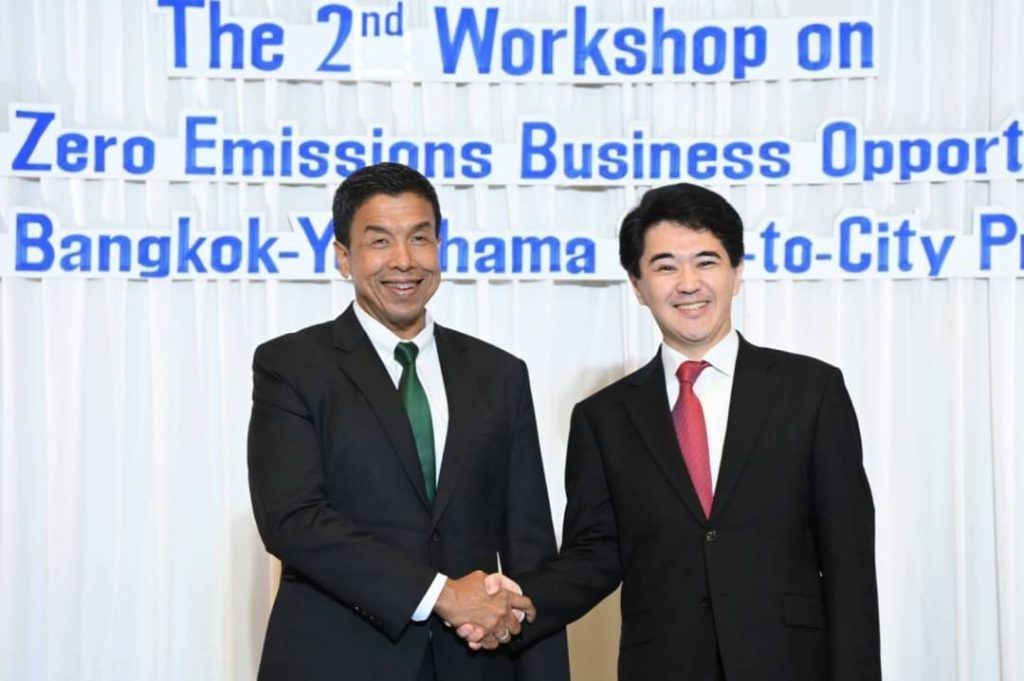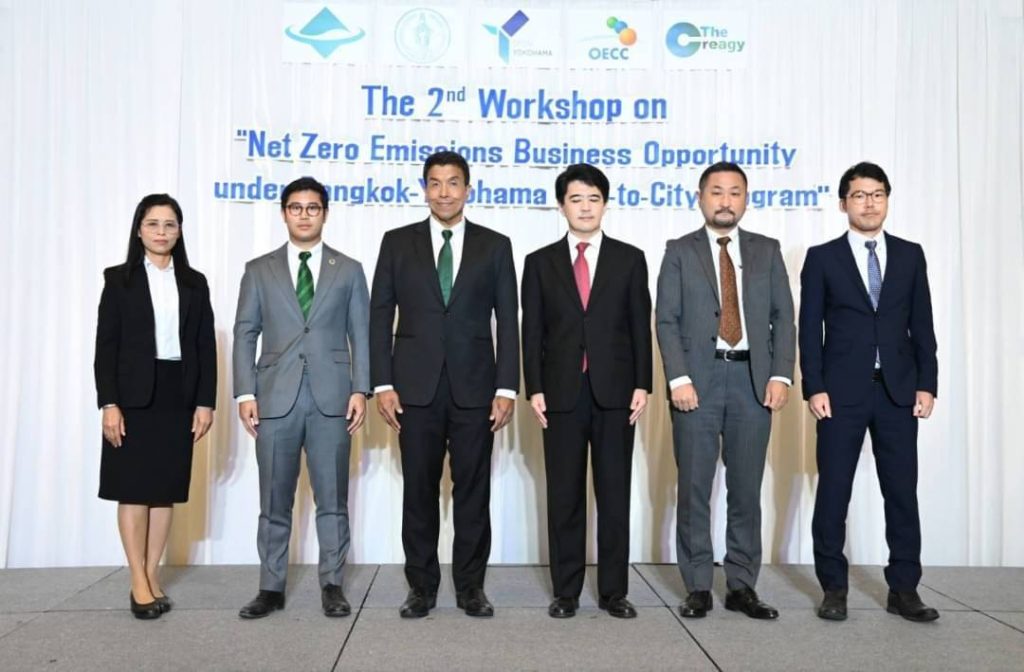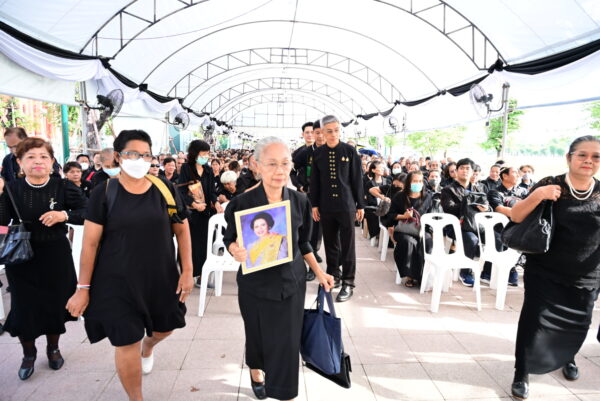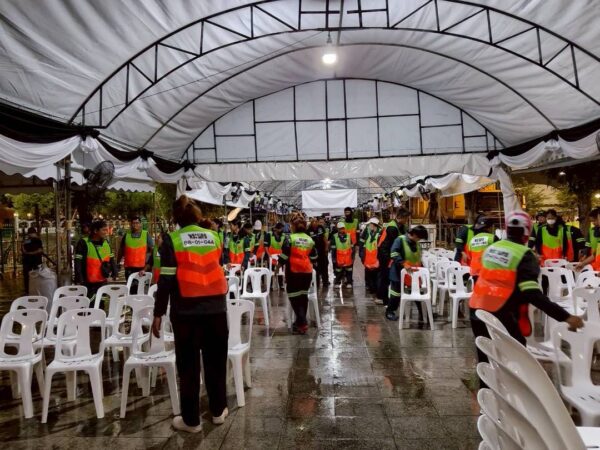The 2nd workshop on “Net-zero Emissions Business Opportunity under Bangkok-Yokohama City-to-City Programme” was launched on Friday by Bangkok Governor Chadchart Sittipunt at Mandarin Hotel in Bang Rak district.

The workshop is a collaboration between the Bangkok Metropolitan Administration (BMA), the Japan International Cooperation Agency (JICA) and the city of Yokohama. The collaboration aims to publicise Bangkok’s 2021-2030 master plan on climate change and promote participation from the general public and private sector.
Also attending the session were Japan’s Deputy Environment Minister Hiroshi Ono, Japanese Ambassador Takuro Tasaka, Yokohama mayor Takeharu Yamanaka, JICA’s chief representative Suzuki Kazuya, and officials from BMA’s Environment Department.
Chadchart said Bangkok has been working with JICA and Yokohama on a city-to-city collaboration to achieve its goal of becoming a net-zero capital by 2050.
The 2021-2030 master plan will serve as a foundation to achieve this net-zero target.
“The core of the climate change master plan is to turn Bangkok into a liveable city for all through cooperation with government agencies, private sector, international organisations and the general public to tackle environmental problems from all dimensions,” Chadchart said.
The governor added that under this plan, the city has established a joint committee with the Natural Resources and Environment Ministry to tackle the PM2.5 fine dust pollution.
BMA is also working with the Thailand Greenhouse Gas Management Organisation to record the carbon footprint of agencies and organisations based in Bangkok. This information will then be used to create an action plan to reduce emissions in the city.
“The meeting today is not the starting point of our climate operation, but is part of continued cooperation between the BMA, JICA, Yokohama, and Japan’s Ministry of Environment,” Chadchart said. “Bangkok’s 10-year climate change master plan would not have become a reality without guidance and action from related parties.
“Many businesses still consider greenhouse gas reduction as a costly endeavour, but it offers great opportunities for the future in terms of business expansion, job creation, the building of a knowledge base and innovation. It is truly a worthwhile business opportunity,” he added.
“Yokohama’s problems are similar to those in Bangkok and we believe we can help each other find solutions, especially by using Japan’s technology that can be adapted in Thailand efficiently.
“The workshop today will put Bangkok’s master plan into action. It is making good progress as the city has a lot of plans drafted, but some of them still need to be implemented,” Chadchart said.




